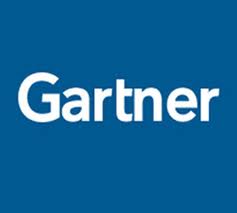Gartner announced the acquisition of Software Advice this morning. This is a relatively small acquisition, but because Gartner has not made many acquisitions during the last few years, it is noteworthy.
Software Advice personnel do research on the software for a vertical sector, with a focus on identifying the main differentiators among vendors. The company uses that research to create short online quizzes that help it understand what type of software someone is looking for. Then it provides a phone consultation with software buyers to help narrow down choices to just a few vendors. We believe that search engines provide a large amount of traffic for the site, which is probably one of the main risks associated with the business. Software buyers do not pay the company anything.
Instead, we believe that all of the revenue comes from fees paid by software vendors for sales leads that are passed on by Software Advice. Because its sales leads are qualified through a phone conversation and the buyer is educated about the different options available in the market, Software Advice argues that it provides higherquality leads to software vendors than other sources. We believe that the commission received from each software vendor is the same, so there is not a bias to push buyers to certain software vendors. Software Advice originally focused on software just for the construction industry, then expanded into the medical sector (which grew significantly, partly because of the federal stimulus driving adoption of healthcare IT in doctors’ offices). Since then, it has gradually expanded into other sectors as well. The company never took on outside money, so it was still owned by its founders.
Software Advice’s business model bears some similarities and differences as compared with Gartner’s business model. In some respects, both companies provide research on the software market and help software buyers make better decisions about what software to buy. Yet Software Advice’s business model is not a subscription model, and its research is not nearly as in-depth as that from Gartner. We also believe that the majority of Software Advice’s clients are small businesses.
In fact, the CEO of Software Advice was quoted in an interview last year as saying that part of why he founded the company was that “there’s Gartner and Forrester for the Fortune 500 or the Fortune 1,000, but no one is serving the small, midsize business market.” Gartner management also commented at a competitor’s conference today that Software Advice’s research on technology for certain niches, such as the construction industry and medical offices, does not overlap with Gartner’s existing research.
As shown in the following exhibit, Software Advice’s revenue has grown quickly over the last five to six years, including close to 70% growth in 2013. If we assume that the company’s revenue will grow to around $20 million in 2014 (33% growth), 1% would be added to Gartner’s overall revenue. We do not have a good perspective on the purchase price or the profitability of Software Advice, however, so it is difficult to estimate the impact on EPS. Thus, we will wait to adjust our revenue and EPS estimates until the company reports its next set of quarterly results, when we expect to learn more details about the acquisition.
Suggested Reading: Most Expensive Engagement Rings
